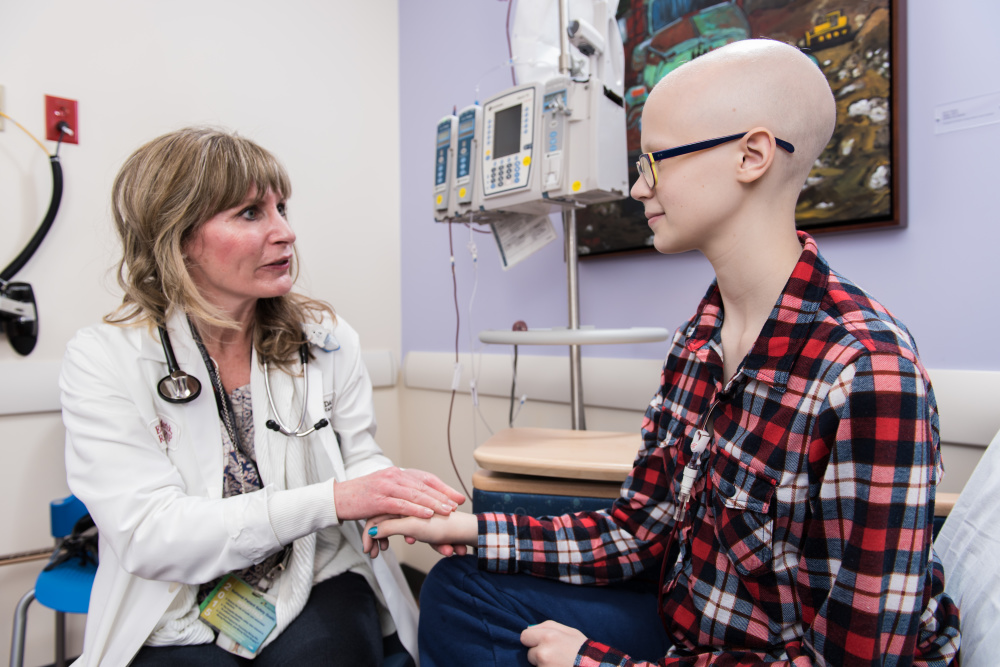Just hearing the word chemotherapy can bring forth a slew of worries and concerns for new cancer patients: “Does it hurt? Will it cause my hair to fall out? Is it safe for me to be around my loved ones? Will I feel nauseous or start vomiting as soon as treatment begins?”

Such concerns are perfectly normal, because most people only hear about chemo’s negative side effects. Although chemotherapy is a very effective tool to treat cancer, it can sometimes cause hair loss, nausea, and fatigue.
Even if you don’t know exactly what worries you about chemotherapy, you may find yourself with a general sense of anxiety or unease about the overall process. Addressing any anxiety you might have is as important as treating potential side effects. Consider these steps for taking control of the situation, before your treatment begins.
- Start by talking with your health care team. Tell them about your worries and concerns. Get answers to any questions you might have about chemo side effects. Ask your care team how they will help you deal with any potential challenges that might arise during treatment.
- Don’t expect the worst. Not everyone experiences every side effect of chemotherapy, and some patients report few, if any, problems. Today’s chemotherapy treatments include improved medicines that minimize many common side effects.
Learn more:
- Get insight from someone who has been there. Join a support group or take time to talk with other cancer patients who have already started chemotherapy. If you’re a Dana-Farber patient, consider the One-to-One program, which pairs new patients with people who have previously gone through similar treatments.
- Do a little homework. Learn about helpful steps you can take to manage chemo-related side effects.
- Stay active. Studies show that regular and moderate exercise can reduce fatigue caused by chemotherapy. Check with your care team to make sure your exercise plan won’t interfere with your treatment, then ease into a fitness routine that’s right for you.
- Consider integrative therapies. Tools such as reiki, meditation, yoga, and acupuncture may help ease side effects and reduce stress.
If you do find yourself experiencing side effects, talk with your health care team right away. Many side effects can be reduced or eliminated if addressed promptly.
No one will tell you that chemotherapy is fun, but it shouldn’t be something to fear and dread. It’s a vital part of treatment and you should work closely with your care team to make the road to recovery as bump-free as possible.
